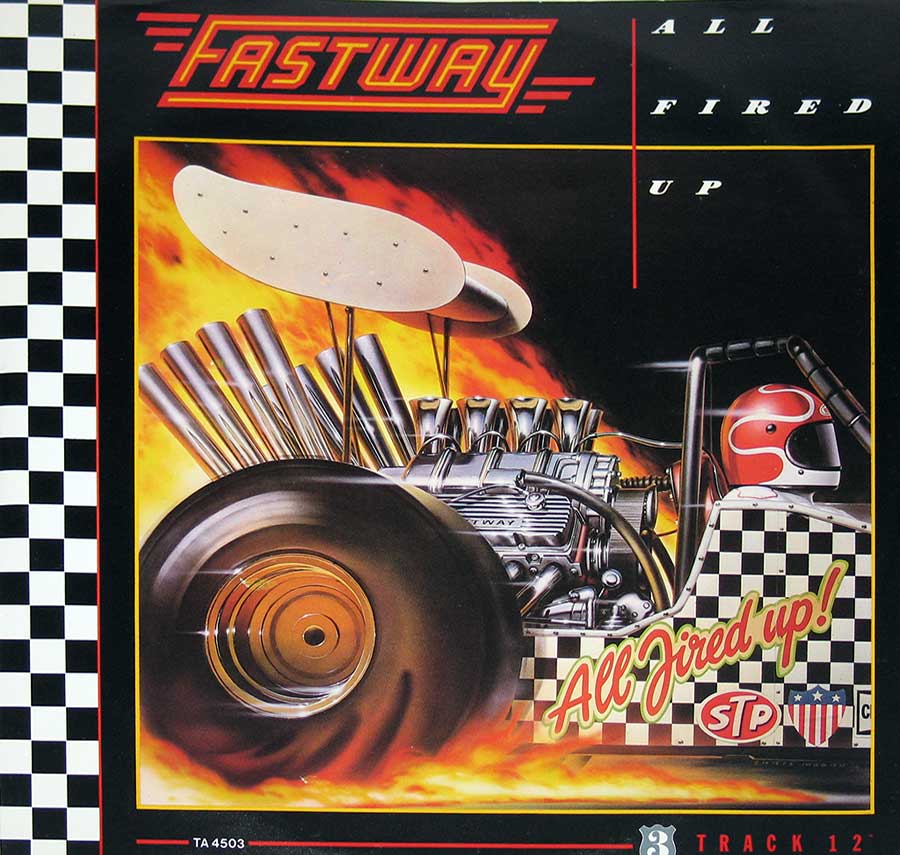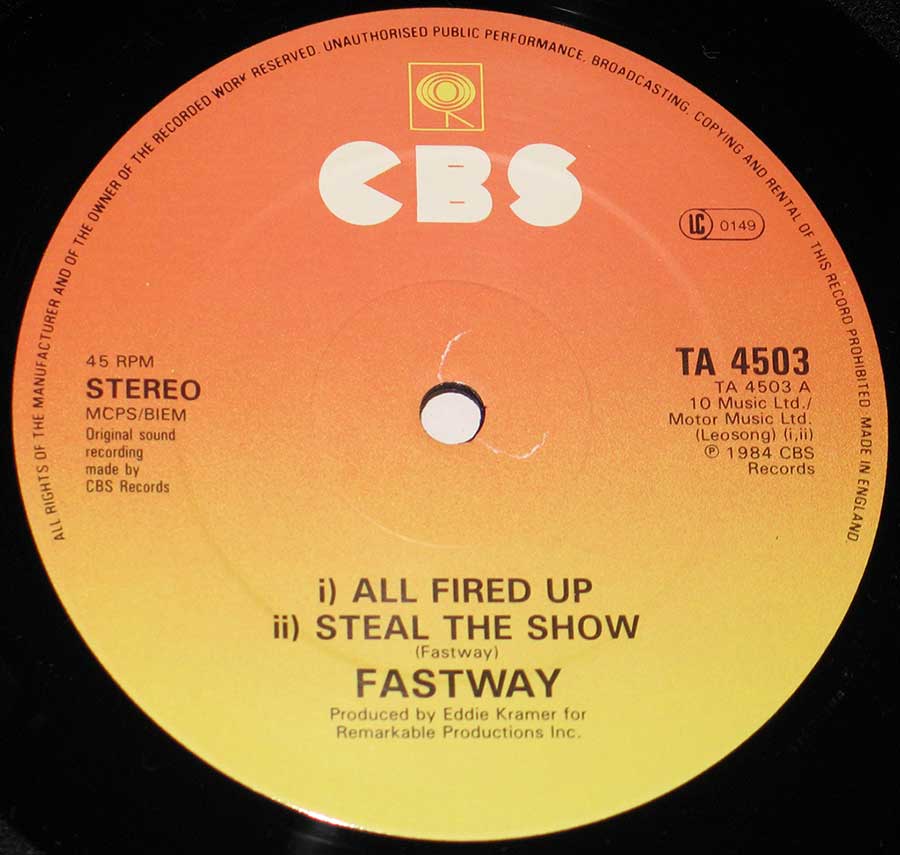All Fired Up – Fastway’s Wild Burnout in the Mid-Eighties Maze
Fastway’s molten slab of blues-metal bravado explodes through the static haze of 1984 rock radio.
Historical Context: Loud Guitars, Thatcher Gloom, and American Dreams
The year was 1984 — Orwellian paranoia was in the air, and MTV had begun rewriting the rulebook of rock with neon eyeliner and overdubbed sincerity. In the UK, a gray, working-class recession hung over the music scene, fueling aggression and urgency. Enter Fastway: a British hard rock outfit caught somewhere between the grime of the London streets and the chrome dreams of American muscle.
Born from the ashes of two powerhouse acts — Motörhead and UFO — Fastway was the brainchild of "Fast" Eddie Clarke, who had recently departed Lemmy’s apocalyptic caravan. He linked up (briefly) with UFO bassist Pete Way, though Way vanished before the amps even warmed up. That left Clarke at the helm, wrangling a band that wanted to punch through the noise of a divided rock world — part glam, part grind, part nostalgia, part future.
Musical Exploration: Blistering Blues with Steel-Tipped Boots
All Fired Up is not a subtle record. It’s not clean, not pretty, and certainly not interested in nuance. From the opening riff of the title track, Fastway announces its refusal to play nice with the genres being peddled by the charts. Instead, it leans into a groove-heavy, riff-fueled explosion of blues-based hard rock filtered through the iron grit of early heavy metal.
Tracks like “Steal the Show” swagger with arena ambition, driven by Dave King’s youthful, near-AC/DC howl, while “Hurtin’ Me” broods with the kind of emotional desperation more often found in Zeppelin’s darker corners. Clarke’s guitar tone is hot and overdriven, but never swallowed by distortion — every lick spits like it’s coming off a scorched fretboard.
Genre Identity: Too Heavy for Radio, Too Melodic for Metalheads
The genre box Fastway fits into? None of them. And that’s the whole damn point. All Fired Up lives in the alley between hard rock and the New Wave of British Heavy Metal — too bluesy to be Maiden, too real to be Crüe. It sounds like a pub gig gone nuclear: fuzzed-out boogie riffs wrapped around choruses that were maybe — just maybe — supposed to break into the U.S. mainstream.
This is a band that didn't bother chasing the spandex crowd or bowing to thrash’s speed trials. Instead, they doubled down on meat-and-potatoes rock: four-on-the-floor drums, blistering solos, and vocals that sound like they were recorded after a pack of smokes and a bottle of whiskey. It’s everything great about British hard rock, minus the pretension.
Controversies and Criticism: Misunderstood or Just Misfiled?
The controversy with Fastway wasn’t about lyrics or behavior — it was existential. Critics couldn’t figure out whether they were a supergroup with no mission or a band stuck in the past. Some saw All Fired Up as a step back from the edge, especially compared to their rougher debut. Others thought it was a commercial play. But the truth? It was a middle finger to all that — a record made for playing loud, not analyzing.
And let's be clear: this was not hair metal. No feathered bangs, no power ballads, no neon. Just gasoline-soaked riffs and a singer who could break glass with a scream.
Production Team & Studio: Kramer Cranks the Volume
Behind the boards was legendary producer Eddie Kramer — the same sonic architect behind Jimi Hendrix, Led Zeppelin, and Kiss. He wasn’t just a hired hand. Kramer brought with him a sensibility that prized live energy over studio gloss. His production on All Fired Up captures the band in full-on combustion mode — raw, sweaty, and dangerously unpolished.
The recording took place in England, reportedly in a studio that captured that warm, analog vibe that digital never quite replicated. You can hear the room in the drums, the fingers on the strings. It’s physical. It breathes.
Alternate Releases: Tweaked and Tuned
While the core content of All Fired Up stayed consistent across regions, some pressings shuffled the track order or included alternate mixes with minor tweaks — a different fade, a slightly rebalanced mix. These weren’t remixes, just subtle variations that made eagle-eared fans pause. European versions sometimes carried slightly different mastering, and some cassette pressings added or omitted liner notes.


